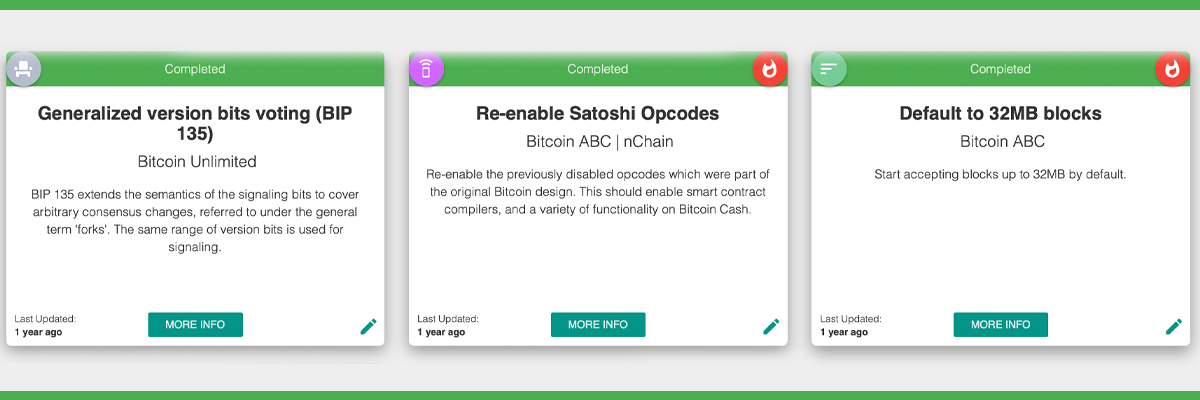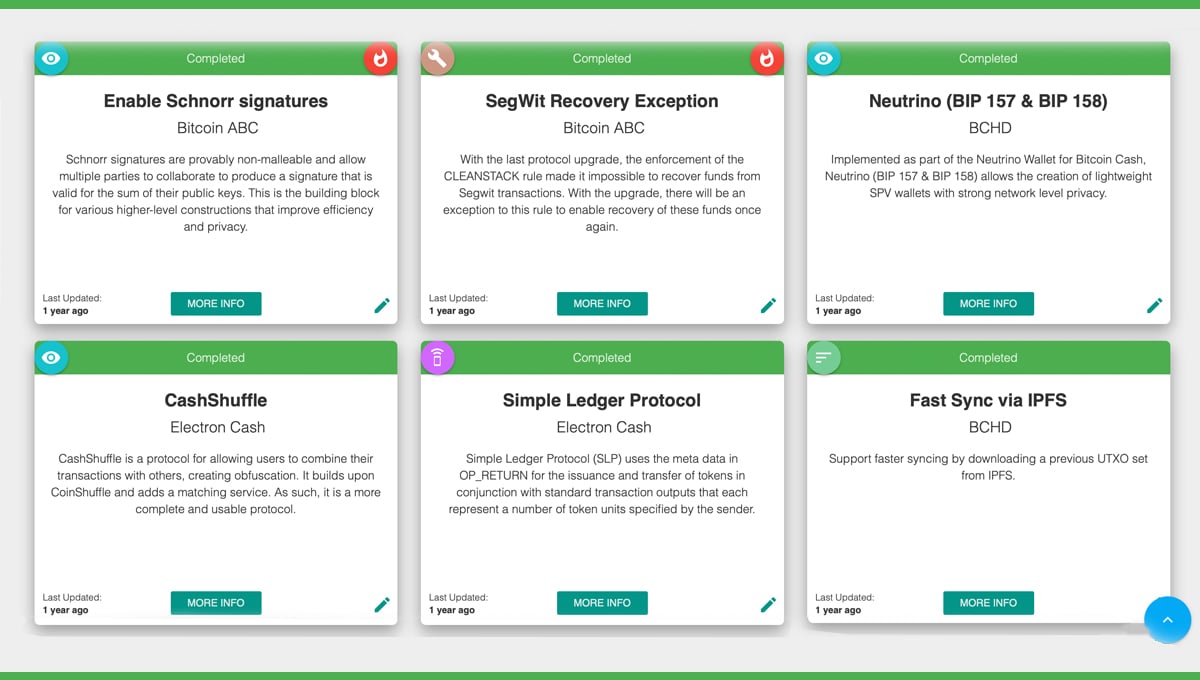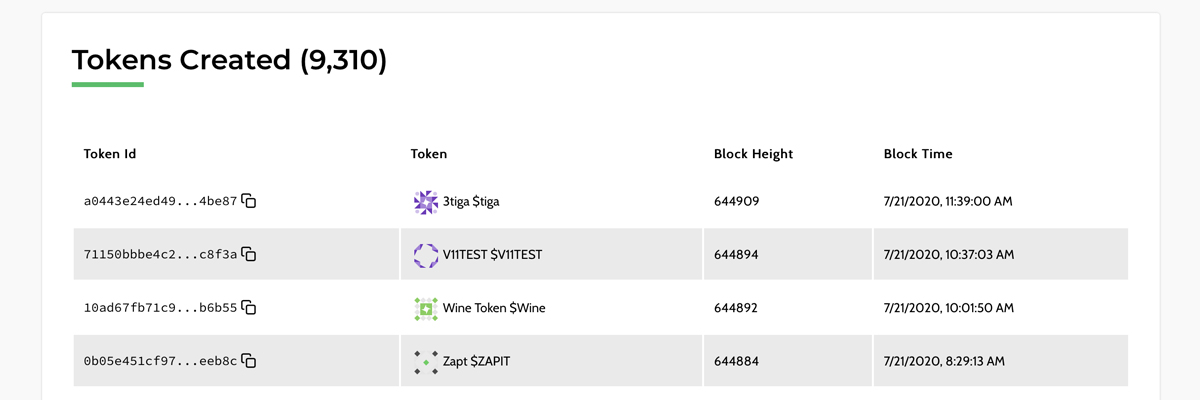
In twelve days the Bitcoin Cash community will celebrate the third anniversary of the 2017 fork that happened on August 1. Since then, a number of changes have happened during the last three years and the following editorial will discuss the significant differences between both chains.
The Bitcoin Cash (BCH) fork took place almost three years ago in 2017 and the official anniversary is twelve days away. A lot has happened since then and in 2018, the Bitcoinsv (BSV) community forked away from the BCH chain.
Currently, BTC, BCH, and BSV are the largest and most popular Bitcoin branches by onchain use, adoption, and overall market valuations. The Bitcoin Cash fork stemmed from the multi-year scaling debate over the 1MB block size limit, and the BTC chain still maintains that consensus limit.

In 2017, the BCH block size was increased and ever since then, it’s been raised to 32MB. Besides having a much larger block size, the BCH chain has seen a myriad of improvements during the last three years.
Bitcoin Cash (BCH) developers have increased to the block size to 32MB, re-enabled old Satoshi opcodes, added version bits voting, and increased the default datacarriersize to 220 bytes.

BCH engineers also implemented a Segwit recovery exception, enabled Schnorr signatures, created Cash Accounts, enabled Schnorr signatures on OP_Checkmultisig, support for OP_Reversebytes was added, and increased chained tx limit from 25 to 50.

With other improvements and tools like Cashfusion and the Simple Ledger Protocol (SLP), there’s a total of 30 completed Bitcoin Cash improvements since August 1, 2017.
During the last few months since May 11, 2020, it has been 1-5% more profitable to mine on the BTC chain in contrast to mining BCH. Although, statistics show on Coin Dance that it is 2,054.93x more expensive to transact on the BTC chain instead of leveraging BCH.
At press time it is $0.003 per BCH transaction or a third of a U.S. penny. Data from Billfodl shows that the next block fee for BTC or the fee to have your transaction mined in the next block (10 minutes), is $0.92 per transaction. Even though BCH has a much larger block size, the BTC chain is also 140GB larger than the BCH chain.

BTC’s codebase is polished regularly and there’s a lot of different small things that have been changed since August 1, 2017. However, the BTC network still maintains consensus for a 1MB block size, and this is improved slightly with Segwit and transaction batching. There’s a lot more offchain development happening between projects like the Lightning Network and sidechains created by teams like RSK, and Blockstream.
BTC does hold 95% of the SHA256 hashrate and the average BTC block reward today is around $57,400 while BCH sees $1,400 per block. The Bitcoin Cash network processed 137 blocks in the last 24 hours while BTC miners processed 129 blocks. BTC is seeing an average of 326,293 transactions today, while the BCH 24-hour transaction metric on July 21 is just under 20,000.

BTC has seen an all-time high of 439,000 transactions confirmed in a 24-hour period. However, due to the 32MB BCH block size, the Bitcoin Cash chain has processed upwards of 2.4 million in one 24-hour period back in 2018.
Two projects that are considered very important to the BCH ecosystem have seen a lot of development during the last year. Specifically, Cashfusion and the Simple Ledger Protocol has galvanized the BCH chain in a few different ways.
Cashfusion has been recognized for providing a higher level of anonymity than traditional Coinjoin practices, as the outputs are not uniform.
On January 29, data analyst James Waugh wrote that Cashfusion was far more practical than other Coinjoin protocols. Waugh explained he sifted through “thousands” of transaction inputs and outputs and realized that it’s “not possible to establish a concrete link” between them.

With the Simple Ledger Protocol (SLP), the BCH community has seen tokenization on the chain grow robust.
Thousands of unique tokens have been created and just recently the most popular stablecoin tether (USDT) was issued onchain using the SLP infrastructure. Whether BCH supporters hate tether or not, the 6 million USDT issued on Bitcoin Cash is meaningful because BCH offers permissionless stablecoins.
BCH-based USDT cannot be frozen like the smart contracts implemented in a number of ERC20-based stablecoins. Additionally, the fees on the Ethereum chain have been astronomical lately, and many BCH supporters see a great number of token projects migrating for lower transaction fees.
Even though fees at $0.003 per BCH transaction are incredibly inexpensive, the Postage Protocol invoked by Cointext founder, Vin Armani, could make fees disappear in certain instances.
Overall a lot has changed in the world of Bitcoin Cash (BCH) and a great number of supporters will be celebrating next week.
What do you think about the last three years of BCH improvements compared to BTC’s changes? Let us know in the comments section below.
The post Third Anniversary of Bitcoin Cash Highlights a Myriad of Network Improvements appeared first on Bitcoin News.

Bitcoin.com is author of this content, TheBitcoinNews.com is is not responsible for the content of external sites.
Our Social Networks: Facebook Instagram Pinterest Reddit Telegram Twitter Youtube










